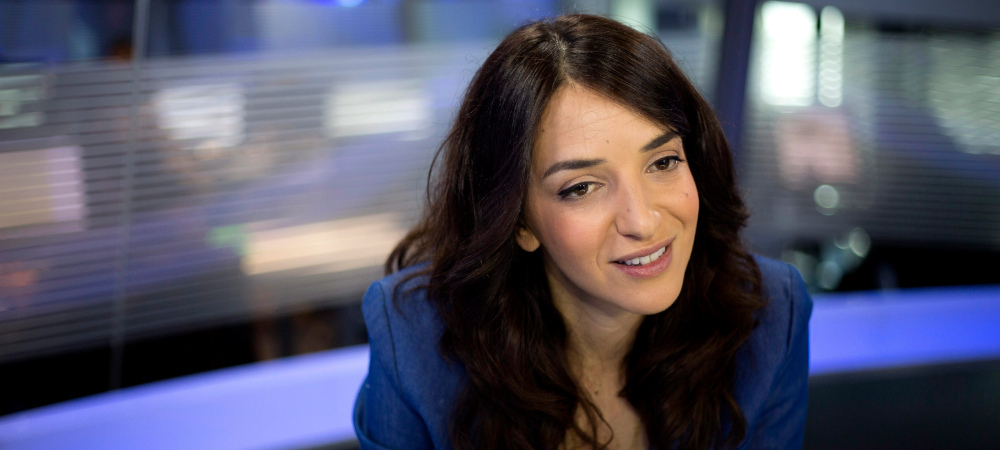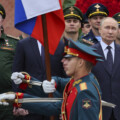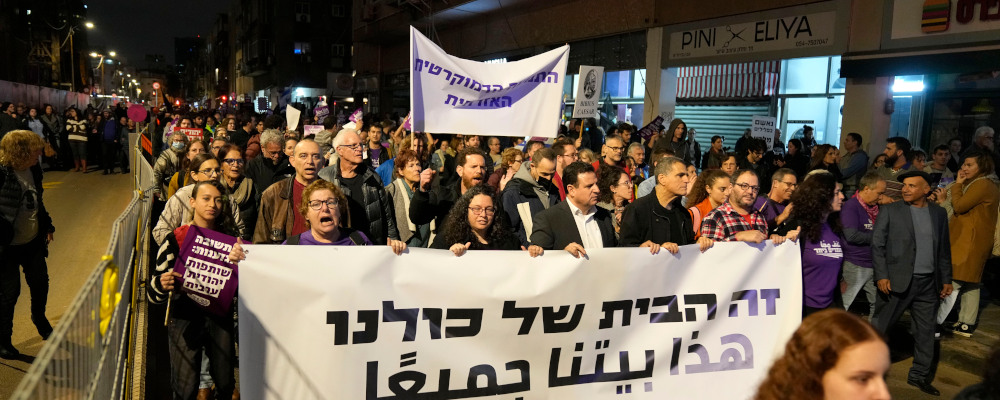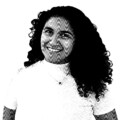This past weekend marked 100 days since the Israel-Hamas conflict began. While there has been a lot of substantive and essential coverage of the experiences of Israeli Jews and Palestinians, another population group that has found itself at the nexus of the conflict but often forgotten is the Arab Israelis.
Nothing better demonstrates this than the controversy surrounding the decision by Israel’s Jewish Culture Department of the Ministry of Education to withdraw funding from the Megiddo Regional Council’s annual Shavuot event because Arab Israeli broadcast journalist Lucy Aharish would be hosting it.
Aharish, the first Arab Muslim news presenter on a mainstream Hebrew-language television show, is in an interfaith marriage with Fauda Israeli Jewish actor Tashi Halevi. Most notably, she and her husband saved lives during the October 7th attacks by facilitating a private rescue operation.
Although Itzik Holevsky, the head of the Megiddo Regional Council, appealed the decision, citing Aharish’s professional and personal experiences that make her qualified to host the event, Itiel Bar Levi, director of the Department for Jewish Culture, rejected it.

In Levi’s written reasoning to the council, he explained the funding was retracted due to bureaucratic miscommunication and procedural technicalities. But then he further reiterated the following: “We live in a ‘Jewish State’ and as the Wing of Jewish Culture, it makes sense that a woman who represents mixed marriage cannot represent Jewish culture.”
His comments elicited outrage not only from Aharish and the council but from many Israeli citizens. The Ministry of Education has since refused further comment.
This situation highlights the complexities of identity and acceptance for Arab Israelis, especially as they navigate a post-October 7th Israel.
Representing 21 percent of Israel’s population, Arab Israelis are situated in a unique position. Not only do they share ethnic and community ties with Palestinians in the West Bank and Gaza (with some even identifying as such) and Arabs across the Middle East more broadly, but they also share national ties with Israeli Jews and other ethnic groups in the state of Israel.
Arab Israelis are descendents of Palestinian Arabs who remained in Israel when it was founded in the 1948 war in what had been British-ruled Palestine. Hundreds of thousands of their kinsmen fled or were expelled.
A majority of today’s Arab citizens in Israel are Sunni Muslims, though there are many Christians and Druze as well. Most Israeli cities have either majority Jewish or Arab populations. More than half of Arab Israelis live in the northern parts of the country.
A December 2023 survey from the Israel Democracy Institute, an independent research group, sought to understand how Arab Israelis have responded to the conflict and see their place in Israeli society more generally. The survey results showcase an interesting mix of trends.
The biggest finding is that Hamas’ terrorist attacks against Israel and the ensuing conflict have contributed to a rising share of Arab Israelis who now say that they feel a sense of belonging to Israel. More than two-thirds said they feel part of the state of Israel in the survey. That is up from less than half in June 2023 and represents the highest rate since 2004.
Among Arab Israelis, the Druze community identified the most with the Jewish state (80 percent), with Christians coming in second (73 percent), and Muslims third (62 percent).
Interestingly, the feeling of being a part of the state was stronger among those without higher education—with 75 percent of those without a high school diploma saying that they feel a part of the state—than among those with post-secondary education, with only 54.5 of those with a college degree reporting the same.
Arab Israelis also strongly support (more than 85 percent) Arab citizens of Israel participating in volunteer efforts during the war, such as helping evacuees or providing medical assistance.
When asked about the recent statement by the leader of Israel’s Ra’am Party, MK Mansour Abbas, that Hamas’ actions on October 7 “do not reflect Arab society, the Palestinian people, and the Islamic nation”, more than 55 percent of Arab Israelis agreed with it, including 53 percent of Muslims.
As for the current humanitarian crisis in Gaza, nearly 60 percent said that responsibility was shared by Hamas and Israel. The share that attributed sole responsibility to Hamas or Israel was roughly the same at 16 percent and 14.5 percent, respectively.

A large majority (78 percent) of Arab Israelis say there has been no change in their relations with Israeli Jewish friends or acquaintances. Only 15.5 percent say that these relations have worsened since the start of the conflict.
Yet, despite feeling a strong kinship with Israel and its society as a whole, 71 percent of Israeli Arabs said they do not feel comfortable expressing themselves on social media, 84 percent are worried about their physical safety, and 84 percent said that they are concerned about their economic security and prospects. More than half (51 percent) say they feel comfortable speaking Arabic in public spaces, but that number is down by 25 percentage points since the start of the conflict.
One key consideration is that many Arab Israelis have close familial and friendship ties with Palestinians in Gaza and the West Bank. As such, there is a great amount of personal loss and difficulty in the background of the current conflict. The survey highlights, for instance, that of Arab Israelis who have family and friends in Gaza and the West Bank, 76.5 percent do not feel comfortable contacting them in the current social climate.
Recommended for You

Michael Kaumeyer: Polite decline: Canada’s aversion to being our best is holding us back

Howard Anglin: Lament for a Lament

‘A place where anybody, from anywhere, can do anything’: The Hub celebrates Canada Day

Peter Menzies: It’s no wonder Canadians are tuning out the legacy media




